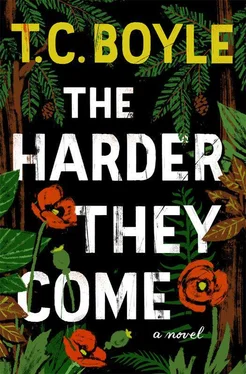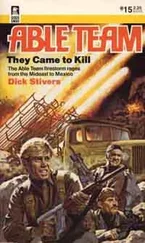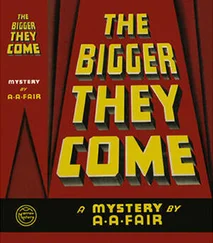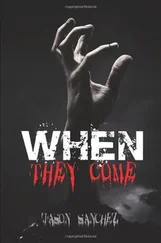“What do you mean? I’m the owner. Do you need proof, is that it?”
The girl looked embarrassed, the way people do when they’re about to drop a bomb on you. “No,” she said softly, and Sara could see that it wasn’t her fault, that she was sympathetic, somebody’s daughter just doing her job. “It’s that — well, the report says here that the dog bit someone, is that right? And that you don’t have a certificate of rabies vaccination?”
Sara went numb. She just shook her head. The dogs barked and barked, but it was joyous barking — they were barking for their kibble and the cold comfort of their cages.
“She’ll have to be quarantined for thirty days—”
“He.”
“He will, I mean. It’s right here, see?” She swung the monitor round so that Sara could see the regimented blocks of words suspended there, as if they meant anything, as if the official who’d typed out the order had any authority over the dog she’d raised from a puppy so tiny he couldn’t even climb the two steps to the back porch.
“My dog doesn’t have rabies,” she said.
But the girl was ahead of her here, the girl, who despite her youth, sympathy and good humor, had been in this very position before, a girl in uniform just doing her job . “I’m sorry,” she said. “We can’t take that chance. It’s the rules.”
TWO LONG DREARY PLAYED-OUT days dragged by, every ticking minute a new kind of torture. She couldn’t eat. Couldn’t sleep. The TV was just noise and every book and magazine she picked up might as well have been written in code for all the sense it made. She paced back and forth across the kitchen floor till she practically wore a groove in it and shunned the ringing phone, though caller ID told her it was Christabel or one of her clients or — endlessly — her mother calling from her condo in San Diego to magnify her complaints and whisper the details of her confidential crises in a voice so thin and reduced you might have thought it was coming from beyond the grave. Either that or the phone was tapped. Who knew? Maybe it was.
She’d tried to reason with the girl at Animal Control but all she got was “Sorry” and “Those are the regulations” and “There’s nothing I can do,” and then she tried to educate her so she could comprehend what a free-born citizen was and how her arbitrary rules didn’t apply, but that wasn’t working, not a chance, and finally she’d lost it, actually snatching something up off the counter — a ledger of some sort — and slamming it to the floor with a sharp reverberant boom that startled them both. The girl pulled her cellphone out then and informed her she was going to have to leave or she’d call the police. “And I mean it too,” the girl said, her mouth bunched in a pout, and she was a child — a willful, stupid child. And how could you argue with a child?
On the morning of the fourth day, which was a Saturday and the last day the shelter would be open till the following week, she knew she had to do something — she could feel Kutya’s spirit crying out to her just as intensely as if he were right there in the room with her — but she couldn’t imagine what it might be. It was seven o’clock. She made herself some coffee and a packet of oatmeal. Suddenly the phone rang — her landline — and this time she picked it up.
A familiar voice came at her, but at first she couldn’t quite place it. “Sara?”
“Yeah?”
“Cindy Burnside.”
“Oh, yeah. Hi.”
“We were expecting you on Tuesday, or did you forget?”
“No, I’m sorry, I didn’t forget — I ran into some trouble and I should have called you, I know, but, well, it was the police. They impounded my car.” Her voice went thick. She was on the verge of tears. “And Kutya. They’ve got Kutya down at Animal Control.”
“What? What are you saying?”
“He bit the cop that pulled me over. Nipped her, really. Barely broke the skin if you want to know.”
There was a silence.
“But it’s okay now,” she said, “I got the car back. I can come this morning, if you still want me—”
And so there she was again, driving in her own personal property down the brake-eating road to the coast, listening to Hank Williams feeling sorry for himself, her seatbelt unfastened and the windows open wide. She tried not to think, weaving in and out of the dense bastions of shadow the big trees threw up across the road, but she kept coming back to Kutya and the girl at Animal Control and the vertical windows and the locked back door as if it were a chess problem that only needed sufficient brain power to solve. There was practically no one on the road, which was fine with her because there was nothing worse than following some overcompensating idiot’s brake lights around every real or imagined turn, but by the time she was halfway to Fort Bragg the fog had climbed up the hill to meet her, locking everything in its gloom. She rolled up the windows, and then it got progressively darker and wetter till she had to flick on her lights and the wipers too.
She saw no cops, hidden or otherwise, and she made it to Calpurnia in good time, considering the fog. When she pulled into the long dirt drive at the Gentian Burnside Preserve it wasn’t ten yet and that was a good thing because she still had unfinished business in Ukiah. As she rolled up to the barn, Cindy emerged from the house dressed in jeans and a sweater, her hair loose around her shoulders. It was cold. Everything was beaded with moisture, the fog even thicker here. “You poor thing,” Cindy said, coming across the yard to her. “Did you get your dog back yet?”
She could only shake her head, the question so fraught and painful she had to bite her lip to keep from venting right then and there. She tried to keep her personal life separate from her business and didn’t like to make excuses — it wasn’t professional — or lay any of her political views on her clients unless they were receptive, and the Burnsides definitely weren’t receptive, or not the way she read them anyway.
“Cup of tea?” Cindy offered. “And I’ve got a loaf of three-grain bread I baked yesterday if you want a bite of something—”
Cindy was in her fifties, an heiress to some corporate fortune — Sara never could remember which — who bankrolled her husband’s obsession with preserving African ungulates that were on their way to extinction in the wild. She didn’t put on any airs. If you didn’t know, you’d never guess she was worth a hundred million or two or three or whatever it was. She seemed content to live out here on their hundred and twenty acres, riding her horses and helping her husband manage the herd of sable, roan and kudu antelope and the Hartmann’s and Grevy’s zebras roaming around the place as if they’d stepped out of a nature film. She didn’t have a dog because of the animals — there were breeding females amongst them, that was the whole point, and they saw any canine as a threat, no different from jackals or the piebald wild dogs that tore their calves to pieces out on the savanna — and when Sara was there she was always careful to keep Kutya in the car. But then Kutya wasn’t in the car. He was in a cage. In Ukiah.
“No, that’s nice of you, Cindy, but I’ve got a day ahead of me — lots of complications — so I better get right to it. The vet coming?”
“He was out on Tuesday so we went ahead without you. It was Corinna? She was favoring her left hind leg and so he darted her and did a thorough exam — there was some inflammation there and he didn’t know exactly what was causing it, so he’s got her on prednisone. And since she was down, he did the hoof trimming himself.” They both looked off to where the corral narrowed and the fences started and you could see some of the animals in the distance. “So it’s just the horses today,” Cindy said, turning back to her. “No big deal. Nothing to worry about. These things happen, right?”
Читать дальше












